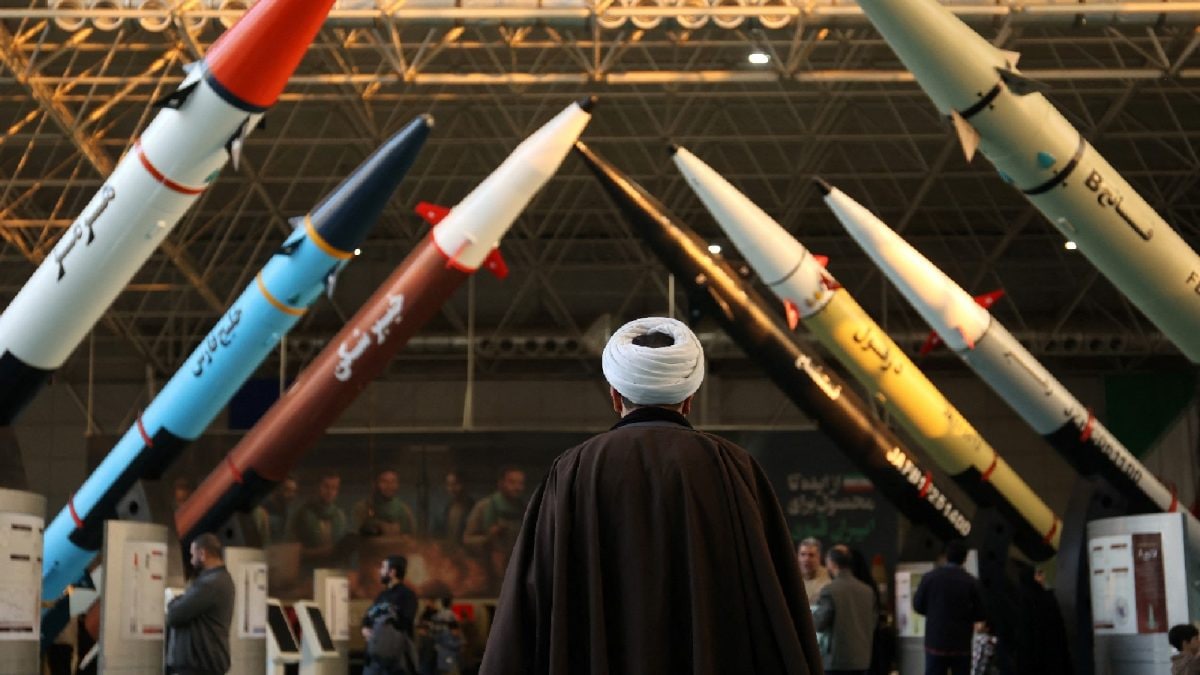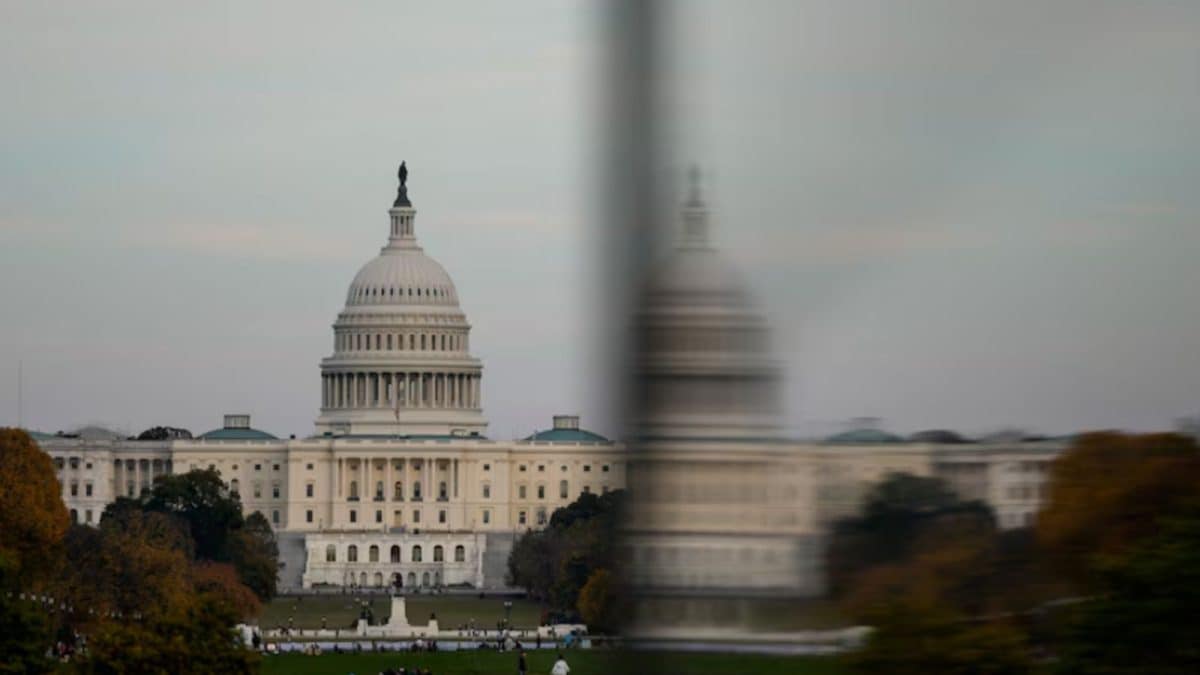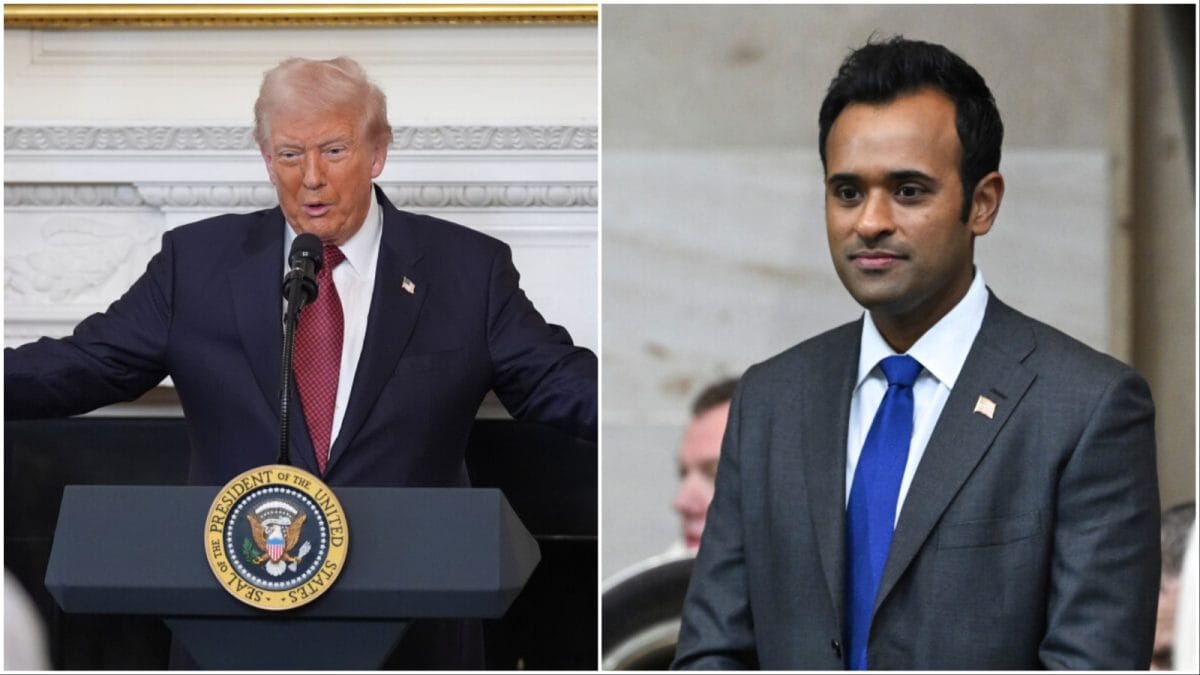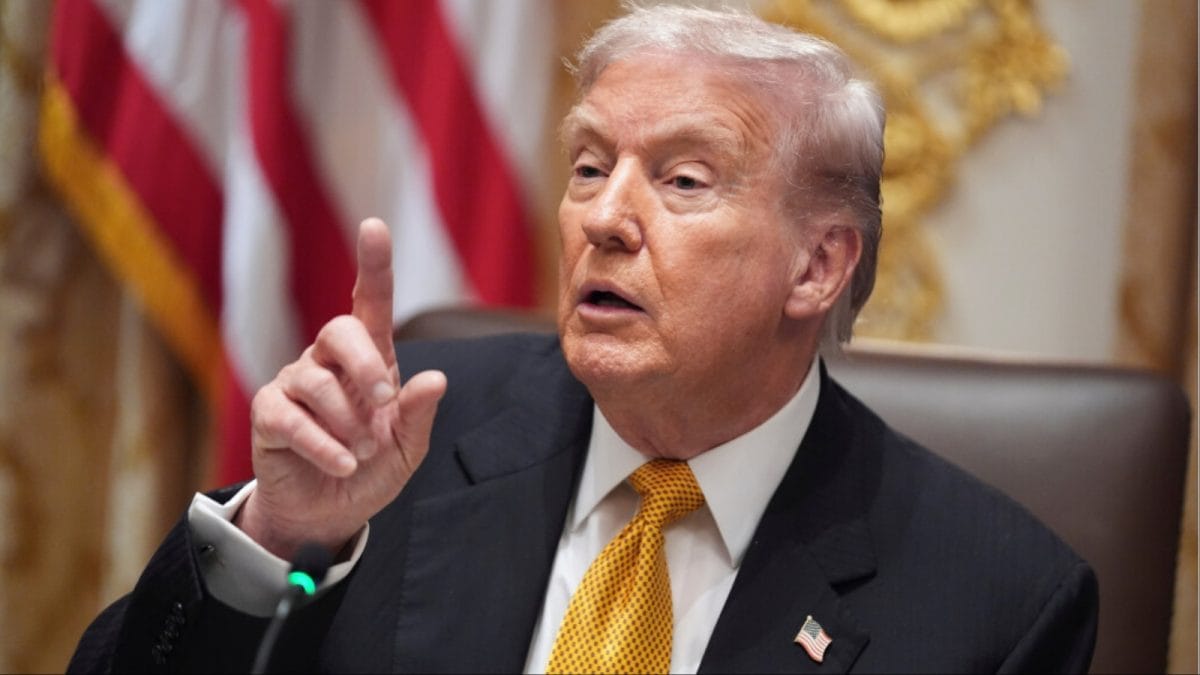Months after its brief but bruising military confrontation with India, Pakistan is moving to constitutionally overhaul its military command structure. It is going to create a powerful new post for a unified command of its army, navy, and air force. The move will see army chief Asim Munir gain with the civilian government ceding power.

Pakistan Army Chief Asim Munir (second from left) is set to retire on November 28 and is reportedly a frontrunner to head the new unified command. (File Image/AFP)
Months after its mini-war with India, Pakistan is planning to introduce the designation of Commander of Defence Forces in its attempt at a unified command and better coordination among the three armed services. The defence reforms are "inspired by lessons" from Pakistan's war with India in May, reported Pakistani media outlets. There's more to it. The change, which will be brought through a constitutional amendment, is likely to give a boost to army chief Asim Munir vis-a-vis the civilian government.
The new title of Commander of Defence Forces (CDF) is under consideration "under the proposed amendment to Article 243, aimed at ensuring greater coordination and unified command among the three armed services," Pakistani daily The News reported, quoting sources.
The move, it said, was said to "have been inspired by lessons drawn from recent Pakistan-India war scenarios and the evolving nature of modern warfare that demands an integrated operational response."
On May 28, India notified new rules for unified command across the three services—Army, Navy and Air Force—to bolster effective command, control, and efficient functioning of Inter-Services Organisations (ISOs). The rules were notified amid the military tensions between India and Pakistan.
In December 2019, the Union Cabinet approved the creation of the Chief of Defence Staff (CDS), a four-star General. Key roles of the CDS include overseeing the Army, Navy, Air Force, and the Territorial Army, and promoting jointness in procurement, training, staffing, and command restructuring. India is aiming for better coordination among the armed forces through the establishment of Integrated Theatre Commands and Integrated Battle Groups.
PAK TO INCREASE MILITARY POWER AT THE COST OF CIVILIAN GOVT'
An amendment to the Constitution in Pakistan is being brought for the unified command structure, the CDF post and change in power structure. The Karachi-based Geo News reported that the Federal government of Shehbaz Sharif is using the 27th Constitutional Amendment Bill to amend Article 243, to make the changes. The official draft of the Bill has not been released yet.
The 27th Constitutional Amendment will also make changes to the power of the military.
Article 243 currently states that "The Federal Government shall have control and command of the Armed Forces" and that "the Supreme Command of the Armed Forces shall vest in the President".
Pakistani Defence Minister Khawaja Asif confirmed to Geo News that discussions are ongoing regarding changes to the law governing the armed forces. "Consultations on amending Article 243 are underway defence requirements have evolved," Asif told Geo News on November 5. "This entire process will be carried out through mutual consultation.
So, if the amendment goes through, it will create the new post of Commander of Defence Forces (CDF). It will provide a unified command and better coordination among Pakistan's army, navy, and air force.
However, the amendment could reduce the direct operational control of the President and the Council of Ministers, led by the PM, over the armed forces, as the new Commander of Defence Forces (CDF) would assume a more centralised role in coordinating the three services.
The ultimate authority, now, constitutionally rests with President Asif Ali Zardari, who is the leader of the PPP. The PPP is part of the ruling alliance in the Parliament, which is led by PLMN's Shehbaz Sharif.
Geo News further noted that the PPP, which had opposed the majority of the proposed changes in the 27th Constitutional Amendment, has indicated it may offer conditional backing for the amendment of Article 243 of the Constitution.
These developments in Pakistan come amid signs of a rift between the civilian leadership and the military. The latter has long been seen as the ultimate power broker, which was allegedly behind stoking tensions with Afghanistan, as alleged by the Taliban regime in Kabul.
Interestingly, Pakistan's Army Chief, Field Marshal Asim Munir, is set to retire on November 28. He's being seen as the top contender for the soon-to-be-created post of Commander of Defence Forces.
HOW INDIA'S OP SINDOOR EXPOSED PAK'S VULNERABILITIES
The proposed changes also follow the brief India-Pakistan mini-war in May, during which Indian offensive and defensive operations exposed significant shortcomings in Pakistan's military preparedness.
"India's national security architecture has demonstrated the strength of jointness and strategic foresight," India's Press Information Bureau (PIB) said on May 18 on Operation Sindoor.
In May, India and Pakistan fought a four-day war after India launched precision strikes on terrorist infrastructure in Pakistan and Pakistan-Occupied Kashmir as part of Operation Sindoor. India's strikes came after Pakistani and Pakistan-trained terrorists killed 26 civilians in Pahalgam, Jammu and Kashmir, after segregating them on religious lines.
Pakistan's Director General of Military Operations (DGMO) phoned his Indian counterpart, offering a ceasefire.
The four-day war saw Pakistan targeting Indian military and civilian areas with armed drones and missiles, most of which were shot down. India dealt a big blow to Pakistan's defence infrastructure, peppering holes in its military runways. Calling out Pakistan's nuclear bluff, Indian forces also displayed their capability of nuclear decapitation with precision strikes.
Pakistan must have learnt lessons in May, resulting in the defence reforms. So, Pakistan now seems to be formalising what critics have long alleged. The military dominates over civilian authority in Pakistan. The difference is, this time, it won't be an open secret but a clause written into the Constitution itself.
- Ends
Published By:
Sushim Mukul
Published On:
Nov 8, 2025
Tune In

 4 hours ago
4 hours ago
















